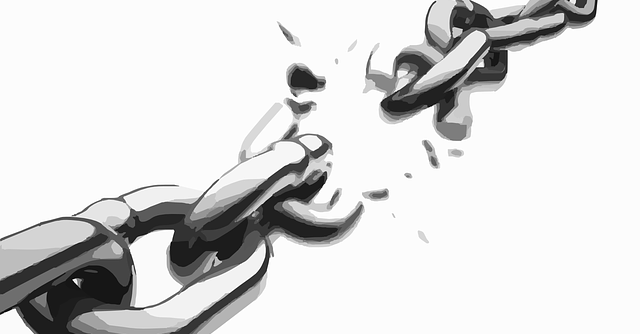WHEN TO BREAK A FAST
Knowing how to break a fast is very important. Sometimes we think we can go for 36 hours but we can’t. Perhaps we had a bad day or are going through some sort of a problem.
That makes fasting difficult.
Life happens and if we need to break the fast before it’s done that’s okay. I had to end my fast before it was done, many times. It is what it is.
Don’t feel like you’ve got to see your fast through to the end every single time, because sometimes it doesn’t work out like that.
Let your body be the guide. Listen to it.
Sometimes the right thing to do is to start eating. I’ve had many fasts where I started out okay and then I just didn’t feel well. I know it was my body telling me, “No, not now, honey!”
Like I said above, there are many reasons for that. One time, in particular, I had a really bad day at work. I had planned to do a two-day water fast, but by the time I got home, I was so upset that I couldn’t continue.
I’m not saying I need food to soothe me. I’m just saying that sometimes we need that normalcy to feel better and that’s okay.
You can always restart a fast.
I always like to tell new faster’s that it’s okay to break the fast before a certain time. Listen to your body and it will tell you what it needs.
Break your fast when your body tells you to do so. But, try to make it through your designated fast whenever you can. If you plan for a 20:4 fast, try to go for the full 20 hours unless something traumatic happens in your life.
Do you understand?
Basically, what I’m saying is be flexible. You don’t always have to finish a fast just because it’s supposed to be a certain length of time. Flexibility is key when it comes to intermittent fasting.
I’ve seen some people go right down to the wire when it comes to ending a fast. It’s a good practice to do, but it isn’t the end of the world if you break your fast at 19 hours and 45 minutes when is supposed to be 20 hours.
If the situation warrants it, like your family takes you out for a birthday supper, break the darn fast early. Or, if your granddaughter gives you a cookie she just baked, come on! For Pete’s Sake, eat it!
Be flexible.
DOES IT MATTER WHAT KIND OF FAST YOU BREAK?
Yes, it does.
If you break a short fast, like a 16:8, you can just eat like normal when you break the fast. Your digestive system will continue on as normal.
If you break a long fast, then you will need to take precautions when you start eating again. Your digestive system will shut down during a fast, and you will have to turn it on again.
Some people think you need to turn it on slowly but that is not what I have found. If you create a plug so to speak, in your digestive system, it won’t turn ugly.
By ugly, I mean diarrhea. Yes, diarrhea.
Like a pump that hasn’t worked in a while, you need to prime it. That means you need to put something in there that holds food in so that it won’t come falling out.
In layman’s terms, it’s like priming a pump. And when a pump first starts up, it spits liquid. Depending on the type of pump, the liquid may be putrid and colourful.
I think of my well-pump analogy, and the yellow and orange water that comes out just before the pump gets primed. If it doesn’t get used, stagnant water sits there until it’s allowed an escape route once again.
Your digestive system is the same as a well-pump.
If your digestive system has been in a resting state for three or four days, you will need to put something in it like fibre, that will be aggressive enough to prevent an explosion if you know what I mean.
Sometimes you can’t prevent the explosion, but you can certainly prevent the severity.
After five years of doing intermittent fasting, I have finally found a method that actually works. Take a great big spoonful of ground flax and drink a lot of water when you break a fast. What that does is it creates a bowel plug.
The bowel plug is enough to hold your food in long enough to prime the pump. After one or two minor explosions, you really can eat anything you want. I have, and it works every time.
WHAT KINDS OF FOOD DO YOU EAT?
It really is a myth that you have to introduce foods slowly when you break a fast. I have found this to be complete rubbish.
When I first started intermittent fasting and broke my first fast, I thought I had to baby my system. I drank juices and ate soups all to find that it just came out the other end as quickly as I put it in.
I couldn’t believe it.
So, I experimented with other foods. I developed my “bowel plug” idea and as soon as that was implemented, I realized I could eat just about anything.
I have broken long and short fasts with big meals. Yes, even a 4 day fast. I can eat a heavy meal when breaking the fast as long as I have my “bowel plug” in place. Ground flax creates that substance you need to hold any kind of food in after a fast.
Try it. You might not think it’s so crazy after all.
I have even eaten A&W and pizza. Yes, I realize those foods are not nutritionally correct, but it really doesn’t matter as much as people think it does, at least in my opinion.
Food is food.
Think of an A&W hamburger for example. What is it made of? It has a nice beautiful bun. Very healthy if it was served with something else. Then it’s got a lovely hamburger made lean and farm fresh as it advertises. Nothing wrong with that.
Then you’ve got some vegetables inside. You’ve got some pickles. You’ve got some tomatoes. You’ve got some lettuce. You’ve got some onions. What the heck is wrong with that?
I think outside the box. All those foods are good for you. Aren’t we just sensationalizing it when we say fast food is not good for us? Pick it apart and see what its actually made up of. Food really is food.
I realize these are just my own opinions and I probably can’t change anyone else’s mind anyway, but my main objective is to just let you know that you really can eat anything you want when you break your fast.
Try it! You might be surprised!
WHAT TO EXPECT AFTER
When you break your fast there are a few things that you can expect to happen. First, you will feel sluggish. Once your digestive system starts up again, and energy is directed there, you will feel drowsy.
There won’t be a lot of energy left for other things. Be prepared for that because if you’re at work and you break your fast, you will not be very productive.
I like to break my fast in the evening. That’s why I like OMAD. Eating one meal a day allows me to break my fast when I come home from work so I don’t have to risk falling asleep on the job.
In my opinion, the ideal time to break a fast is just before you go to sleep. I know that contradicts what we’ve always been told: Always go to sleep on an empty stomach.
Lies! Lies!
What I have found is that your body naturally wants to sleep when your belly is full. So, let it. I’ve gone to sleep on both an empty and a full stomach and there really is no difference. Not to me anyway.
It only makes sense to go to sleep after you’ve had your meal. Let the body direct energy toward digesting your food.
Also, I have experienced bloating after breaking a fast simply because food promotes inflammation in the body. As much as I love food, I hate that part about it. Food always kickstarts an inflammatory response when I break my fast.
Some have reported that they don’t feel very well when they start eating again. That would be why: Inflammation.
Toxins also get reintroduced into your body when you start eating again after a fast. No matter how clean you try to eat, or how organic your food is, there’ll always be toxins.
Toxins come from groundwater. Toxins come from rain. Toxins come from the air. Toxins come from chemicals we spray on our food. Toxins come from processing.
Even if we lived a hundred years ago and grew our own food, there would still be toxins because pollution is a reality no matter what generation you live in.
That’s sad but true.
All the more reason to detoxify your body through intermittent fasting.
BOWEL EXPECTATIONS
Ah yes, poop!
The more you do intermittent fasting, the more efficient your digestive system will become. Your gut will actually heal.
I know because mine has.
I have struggled with constipation and diarrhea all in one day sometimes before I started intermittent fasting. My bowel movements were so unpredictable that I didn’t even want to leave the house.
As you age, and your hormones decrease, your bowel movements change because of it. Hormones control your digestive system.
With that in mind, it’s a given that we will suffer from constipation and diarrhea more so as we get older.
That’s the beauty of intermittent fasting for older people. Intermittent fasting heals the gut and also increases hormone levels in the body. The human growth hormone alone increases 1000 times the norm in women when they fast, and 2000 times the norm in men.
That’s incredible. That clearly shows that intermittent fasting is the best thing for our digestive system especially as we age.
Since doing intermittent fasting, I have noticed my bowel movements have become more regular and I almost never suffer from extremes like constipation and diarrhea anymore.
My bowel movements are effortless. I’m completely normal now. I want to shout it from the rooftops but I don’t think it would go over very well. Just know that you will be smiling in the bathroom every day if you start your own intermittent fasting program.
I highly recommend it!
Need I say more? If you liked this article, please consider pinning it on Pinterest by clicking the picture below.

For more information, please got to the Hungry Old Lady Youtube channel by clicking on the video at the end of this post. Thank you for reading my blog!


